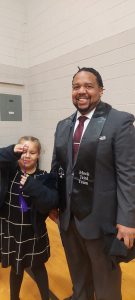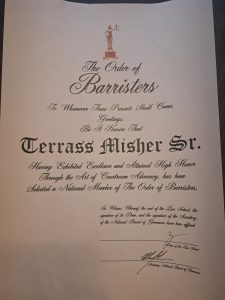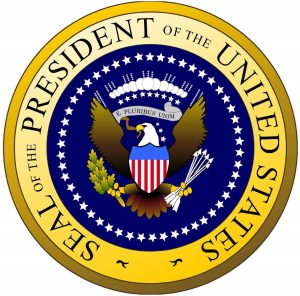

I received a wonderful email over the holidays from Terass “Razz” Misher letting me know he had graduated from law school. The subject line of the email simply read “I graduated.” I was thrilled to read his email and so happy for him and his lovely family.
I first met Razz back in April 2020 when we started the podcast “See You In Court,” which is sponsored by the Georgia Civil Justice Foundation. Razz was our very first producer of the podcast and he did a wonderful job. I learned a lot about podcasts from Razz, from what type of microphone I should use to elimination of ambient noise in the room. I was introduced to Razz by my good friends Steve Lowry and Yvonne Godfrey, host of the incredible “The Great Trials Podcast.” BTW, I happened to be a guest on “The Great Trials Podcast” in October 2020 discussing my plaintiff’s $2.35 Million verdict in Fox v. Emory University Hospital. You should check it out! Anyway, they were using Razz for their podcast and suggested I hire him as well. Which I immediately did and it was a great decision. During the next few years, Razz and I spoke many times about a life in law and particularly pro bono efforts. Razz seemed to become more and more interested in what we did as lawyers and the types of cases we handled the clients we served. He started having a thought in the back of his mind that maybe being a lawyer would be right for him. Steve and Yvonne even did an entire episode entitled “Should Razz Go To Law School?” The answer seemed to be a resounding “yes!” Then, one day, he announces to us that we will need to find a new producer because he is going to law school! Wow! Razz said that working with lawyers and listening to stories about lawyers helping others inspired him to consider a life in the law, also, and he decided to take the leap for himself and his family. Razz hooked us up with our current producer, Phillip Hoover, leaving us in Phillip’s capable hands. I was honored to be asked to write Razz a recommendation letter for law school and I proudly did. The next thing I know, Razz is headed to Elon School of Law in North Carolina. Three short years later Razz has graduated. Not only that, he was also inducted into the Order of the Barristers at Elon, which is for only the absolutely top law students at that law school. The photos show Razz with his beautiful family.
I have often encouraged young folks to consider a life in the law. For me, the number one consideration was it was a profession that would allow me to be completely independent, without being beholden to any other person for support. This was my father’s requirement, i.e., that no matter what I do I must be independent. Being a lawyer certainly does that. Although my father was a pharmacist who owned his own drugstore in a small town, Sturgis, Kentucky, he told me being a lawyer would be wonderful for me because once you got your law license, no one could never take that away from you. No matter what may happen, you could always hang out your shingle like a true entrepreneur and make your own way on your brain and your work ethic, and then if you were successful, it was because of your hard work, and if you weren’t, you had only yourself to blame. Plus, lawyers can use their license to effect change in society…real change. No one else in our legal system can serve a subpoena on another citizen and force that citizen to testify, and in a civil case, to testify even against their own interests. Only with a law license could I have obtained a Presidential Pardon from President Obama for my client who was convicted of being gay (which is obviously NOT A CRIME!) while he was serving his Country in the United States Army and who was imprisoned for two years in Ft. Leavenworth Prison. So, there is a lot to be said about being a lawyer, having a life of service to others and devoting your life to the Rule of Law. As my letterhead reads:
 Atlanta Injury Lawyer Blog
Atlanta Injury Lawyer Blog














